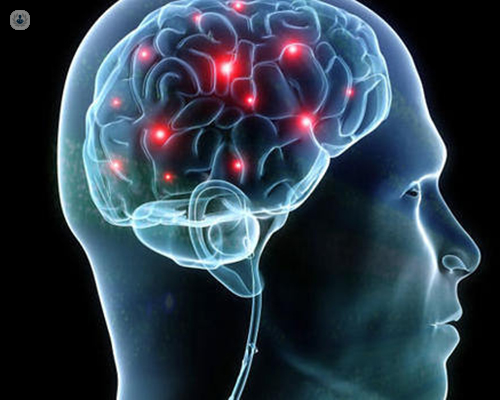What are the symptoms of a transient ischemic attack?
Written in association with:In this article here, esteemed consultant in geriatric, stroke, and general medicine, Dr Frederick Boyle, discusses transient ischemic attacks at length.

What is a transient ischemic attack?
A transient ischemic attack (TIA), often referred to as a mini stroke, is a brief episode of neurological dysfunction caused by a temporary disruption of blood flow to the brain. Unlike a full-blown stroke, a TIA does not result in permanent brain damage and its symptoms typically resolve within minutes to hours. However, TIAs are significant warning signs, indicating an increased risk of future strokes.
What are the symptoms of a transient ischemic attack?
The symptoms of a TIA are similar to those of a stroke and can include sudden numbness or weakness in the face, arm, or leg, particularly on one side of the body. Other symptoms may involve confusion, trouble speaking or understanding speech, visual disturbances in one or both eyes, difficulty walking, dizziness, and loss of balance or coordination. Because these symptoms can mirror those of a stroke, it is crucial to seek immediate medical attention even if they subside quickly.
What are the causes?
The underlying cause of a TIA is usually a blood clot temporarily blocking an artery supplying blood to the brain. Risk factors include hypertension, diabetes, high cholesterol, smoking, atrial fibrillation, and a sedentary lifestyle. Understanding and managing these risk factors is essential in preventing TIAs and reducing the risk of subsequent strokes.
How is TIA diagnosed?
Diagnosing a TIA involves a thorough medical history, physical examination, and diagnostic tests such as MRI or CT scans, carotid ultrasound, and electrocardiograms. Blood tests to check for conditions like diabetes and high cholesterol are also commonly conducted.
How is TIA treated?
Treatment for TIA focuses on addressing the underlying risk factors. This may involve medications to control blood pressure, cholesterol, and blood sugar levels, antiplatelet or anticoagulant drugs to prevent clot formation, and lifestyle modifications such as a healthy diet, regular exercise, and smoking cessation. In some cases, surgical interventions like carotid endarterectomy or angioplasty may be necessary to improve blood flow to the brain.


